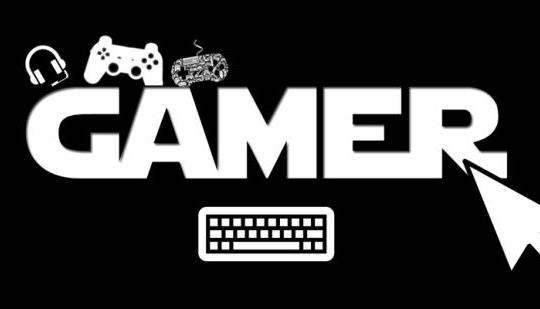By definition, a slang is an informal way of communication. It is a language that is considered informal or colloquial as the case may be. Gamers use slangs and terminologies that a normal human being who is not a gamer or newbie would not really understand. Some slangs are either too old or too new even for fellow gamers to understand. Today, we will be giving insight into the first part of some popular slangs and terminologies gamers use and what they mean.
Here is a handful of them:
8-BIT: These are games modeled after the early computers. The design and art of these games are made from the styles of these early computers.
AAA (TRIPLE A): AAA games are those that are created by major studios like Ubisoft or EA. They frequently have huge budgets and extensive marketing efforts.
AFK: This stands for “away from keyboard”. This means that a particular gamer is unavailable This could be used to let teammates know that you need a break or to indicate that a particular player is not actively participating in the game. An AFK situation, when the player is unable to manage their character, can also be brought on by internet disconnections, for instance.
ABANDONWARE: These refer to games that are no longer on sale and are less likely to be played by recent crop of gamers.
ACHIEVEMENT: A positive in-game evaluation of your skills and gives the gamer some recognition and ability to feel proud.
AREA OF EFFECT (AOE): This is an area within which the effect of an action is felt. The area where the effect is active is typically marked with a circle or another symbol.
AIMBOT: An aimbot is a computer program and an GPS tool that aids the player with his aim. This is mostly found in action games. Most players use this without even realizing. This can be turned off and on in the game settings, usually called Aim Assist.
ACTION ROLE-PLAYING GAMES (ARPG): Action roleplaying games (ARPGs) are a subgenre of role-playing games that prioritize rewarding real time combat over intricate and reactive plots.
AVATAR: An avatar, which can be configured to the taste and persona of the player, is a physical representation of a player inside a game.
BETA: Beta refers to a version of a game still in development. This means that the features intented for the game have not been completed.
BOSS: A boss is a significant computer-controlled adversary in video games. Boss battles and boss fights are typical terms used to describe encounters with boss characters. Bosses typically outclass other enemies the player has encountered up to that point in strength, and defeating them demands a deeper understanding of the game's principles. Boss confrontations are typically seen at the conclusion of specific game parts, such as at the conclusion of a level or stage or when defending a particular goal. With their corresponding levels of difficulty and their appearance in games, there exists a miniboss, a final boss and sometimes, a superboss
BUFF: This a beneficial effect done to a character that makes them stronger
BULLET SPONGE: This is used to describe an enemy that requires too much damage to be killed (because it "soaks up" damage like a sponge). An enemy like a bullet sponge is one that you might anticipate taking out with a few rounds, but really requires several magazines to finish off.
CAMPING: Camping refers to the practice of hiding or waiting in a strategic position of advantage in order to defeat the opponent.
CHECKPOINT: Checkpoints are locations in video games where the game automatically saves, typically either before or right after a significant event.
CUTSCENE: a scene meant to convey the plot and further the story.
COMBO: This refers to a combination of actions. In fighting games, for instance, combos are collections of attacks that, when used sequentially, are challenging to caounter and may even activate super moves. It can be challenging and rewarding.
DIFFICULTY LEVEL: This explains the level of difficulty in playing a video game.
DLC: This is an acronym for downloadable content. It refers to any additional content, such as characters, stages etc that you can download independently from the main game.
EASTER EGGS: These are in-game elements or hidden messages. This may take the form of a subtle reference to another game in the series, a humorous message that the developer disguised, or something similar.
EMULATOR: An emulator is a software program that mimics a console or operating system so that games that weren't designed for that platform can be played on it
ENGINE: Game engines are the programs and software framework that make up games. They are primarily designed for the dev9of games. They might be specialized engines designed just for one game, or they can be generalist engines like Unity and the Unreal Engine, which many developers utilize to create several types of games.
EXPERIENCE POINTS (XP): These are points rewarded to gamers. In video games, players can gain experience points for carrying out particular missions and deeds. When a player levels up, skill points are rewarded.
FPS: This could mean two things. FPS stands for First Person Shooter games. This is a genre where the viewpoint is from your character's perspective rather than from a camera behind them. In first-person shooters, you frequently see a weapon hovering in your hands, as if you were the character.
It could also mean frames per second. This determines how smoothly games can run on your system.
Video game terminologies are too numerous to mention, hence the division of this article in parts. We hope you have upgraded your gaming vocabulary with this detailed explanation of these gaming terms. Watch out for the second part, coming soon!
